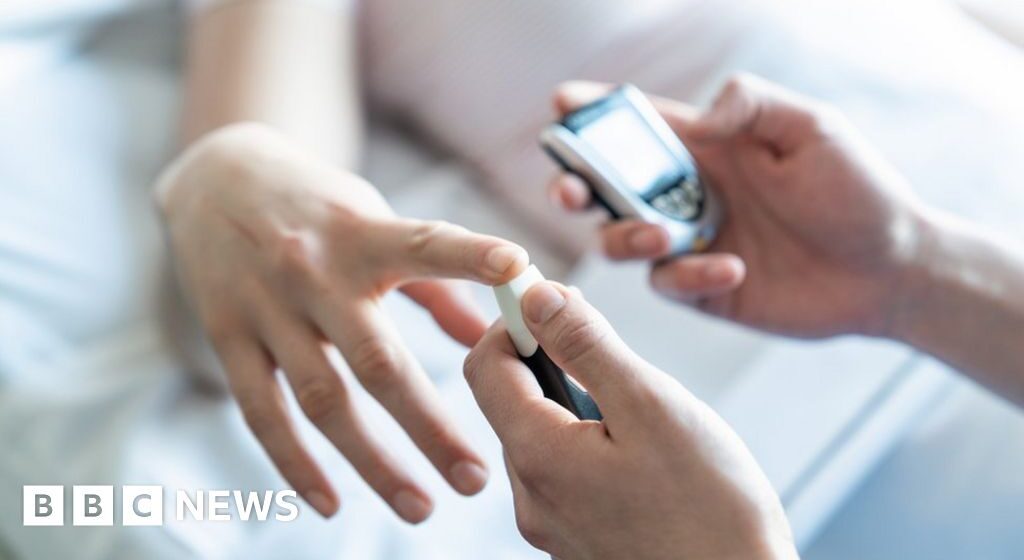An additional 3,500 people have been diagnosed with diabetes in Northern Ireland in the past year
The number of people living with diabetes in Northern Ireland has increased.
In the last year, another 3,500 people were diagnosed with the disease here.
Diabetes UK said more awareness was needed about the reality of living with diabetes.
It is an autoimmune condition that results in the body not being able to produce enough insulin to control blood sugar. There are two main types of condition.
Type 1 is when an individual’s pancreas produces little or no insulin, an important hormone that helps turn food into energy.
The prevalence of diabetes has more than doubled in just under 20 years from 51,541 to 111,806.
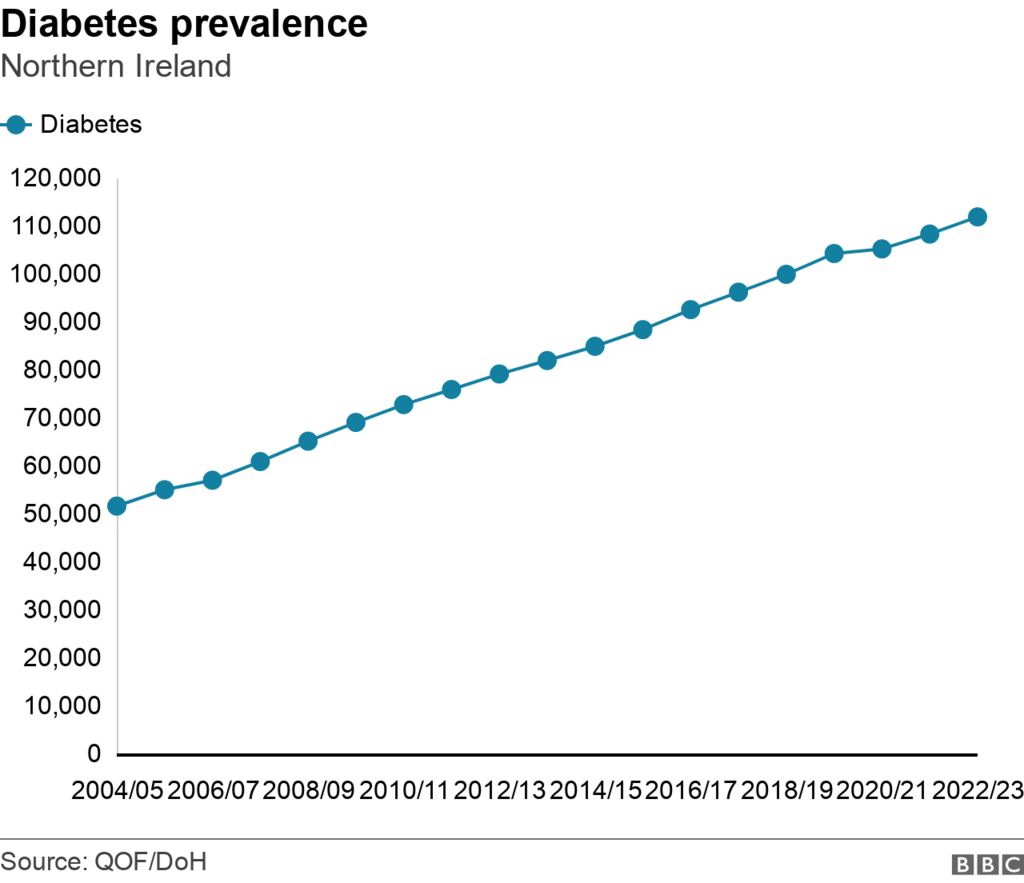
This means that people with the condition must monitor their blood sugar or glucose levels closely and supplement their insulin levels every day using injections or an insulin pump.
High blood sugar levels over a long period of time can lead to complications such as kidney failure, eye problems and heart attacks.
Type 2 diabetes is more common and occurs when cells in the body become resistant to insulin and so more is needed to keep blood sugar levels within normal ranges.
It can usually be controlled through diet, exercise, and close monitoring.
Gestational diabetes is high blood sugar that develops during pregnancy.
It usually disappears after birth, but this is not always the case.
‘You are not alone’
Gemma Bell-Gibson, from Bangor, County Down, said she became very anxious after developing type 1 diabetes following pregnancy.
“I didn’t know how it would affect my family and it made me rethink everything.
“Also, I have a lifelong phobia of needles and I knew I would have to inject insulin as part of my condition, so I just couldn’t think straight at first.”
Ms Bell-Gibson said this anxiety began to affect her health.
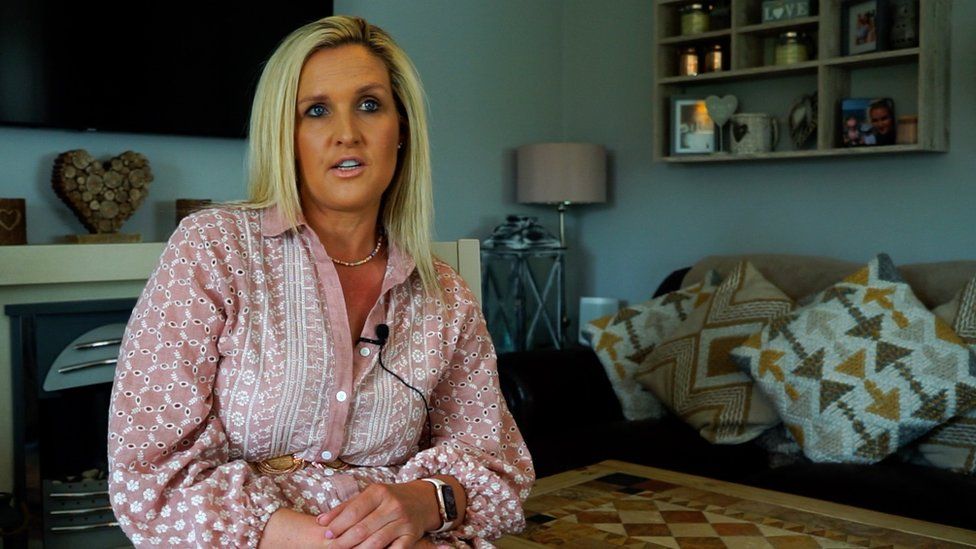
Gemma Bell-Gibson was diagnosed with type 1 diabetes after pregnancy
She said: “Night time was the worst, when I was in my bed I was afraid my blood sugar might drop very low and I wouldn’t wake up to hear my baby crying.
“There was a 10-year period of almost sleepless nights where I would lie awake and constantly get up to check my blood sugar levels.”
Ms Bell-Gibson has made some lifestyle changes during the pandemic and said she is now in a much better place.
“Now I’m on a tighter, healthier journey that helps me sleep better and I know I have nothing to be ashamed of or embarrassed about.”
She is a member of one of the Live Well Hubs set up by Diabetes UK which operate across Northern Ireland.
Ms Bell-Gibson added: “It’s important for me to raise awareness to let people know there are so many of us and you’re not alone.”
“It was an awakening”
Jack McClean is a member of Ballymena Live Well Hub and was diagnosed with type 2 diabetes four years ago.
The 80-year-old said: “My wife passed away three years ago and going to the group helps me deal with my condition and understand it more.”
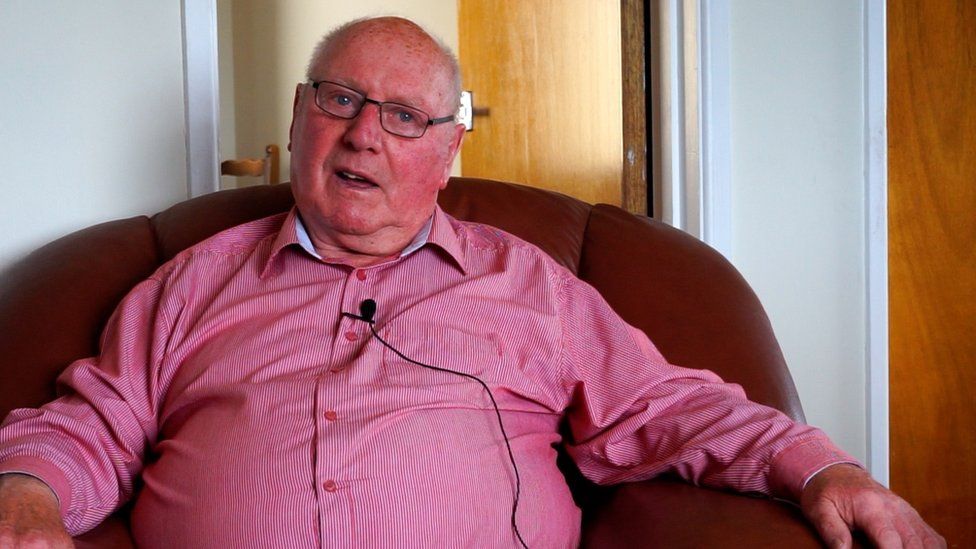
Jack McClean said attending a group helps him watch what he eats and make sure he takes the right medication
He added: “Now I know my diet wasn’t good, I was taking too much sugary stuff like cake and stuff like that.
“But getting the diagnosis and going to the group gave me the wake-up call I needed to watch what I eat and take the right tablets. So I’m doing my best.”
Diabetes is now the third most common disease in Northern Ireland after hypertension and asthma based on the latest figures up to March 2023.
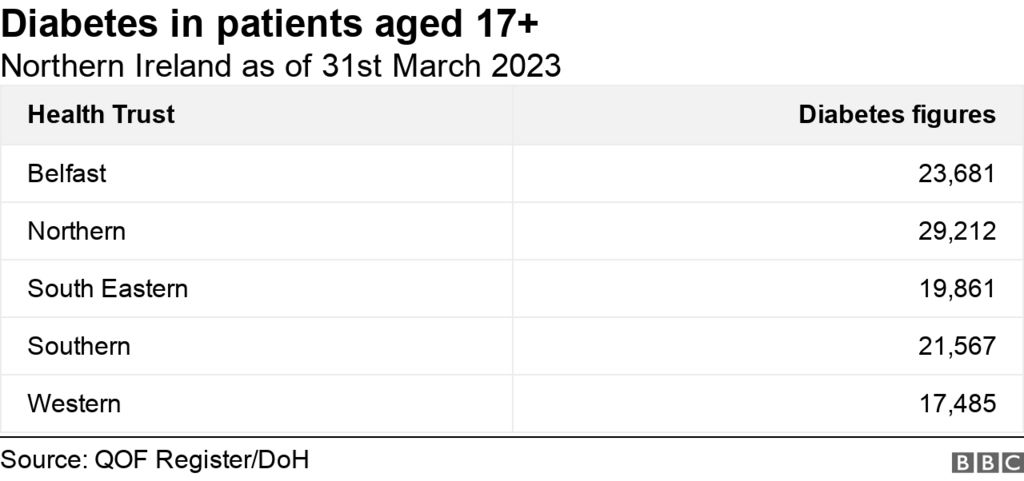
The figures collected by the Department of Health refer to people aged 17 and over.
There has been an increase of over 1,300 people diagnosed in the Northern Trust alone in the last year.
The Northern Trust said it could not say for sure the reasons for the increase, but pointed out that it has the largest geographical area of any health trust in Northern Ireland. The trust also highlights the wider rising trend of obesity.
For the first time, the latest figures from the Ministry of Health also include people with blood sugar that is higher than normal, but are not considered diabetic.
It is currently 66,009 for Northern Ireland.
Prevention
Tina McCrossan, Diabetes UK’s Northern Ireland director, said the number of people with diabetes in Northern Ireland – almost 112,000 – can be difficult to visualize.
“But from a Northern Ireland perspective, think about 12 full-capacity Belsonic gigs and all those people are living with this severe, relentless condition that affects people’s physical health and emotional well-being.”
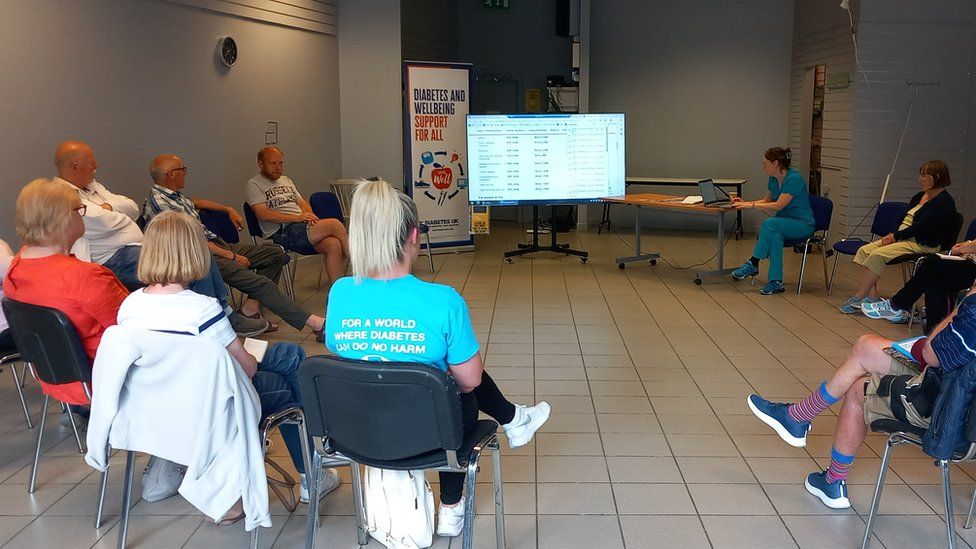
Diabetes UK operates a number of Live Well Hubs across Northern Ireland
As part of Diabetes Awareness Week – which runs until Sunday 18 June – the charity is trying to raise awareness of the issue of prevention.
Ms McCrossan said: “We all know the health budget is under pressure and although we cannot prevent type 1 at the moment, there are measurable steps that can be taken in many cases of type 2.”
She added: “We argue that investment should be made in prevention to not only positively impact the lives of people living with or at risk of type 2, but also to help ease the pressure on our health systems. services and make savings.
“In turn, these savings can be reinvested to ensure that all people living with diabetes have access to the support they need, when they need it.”

